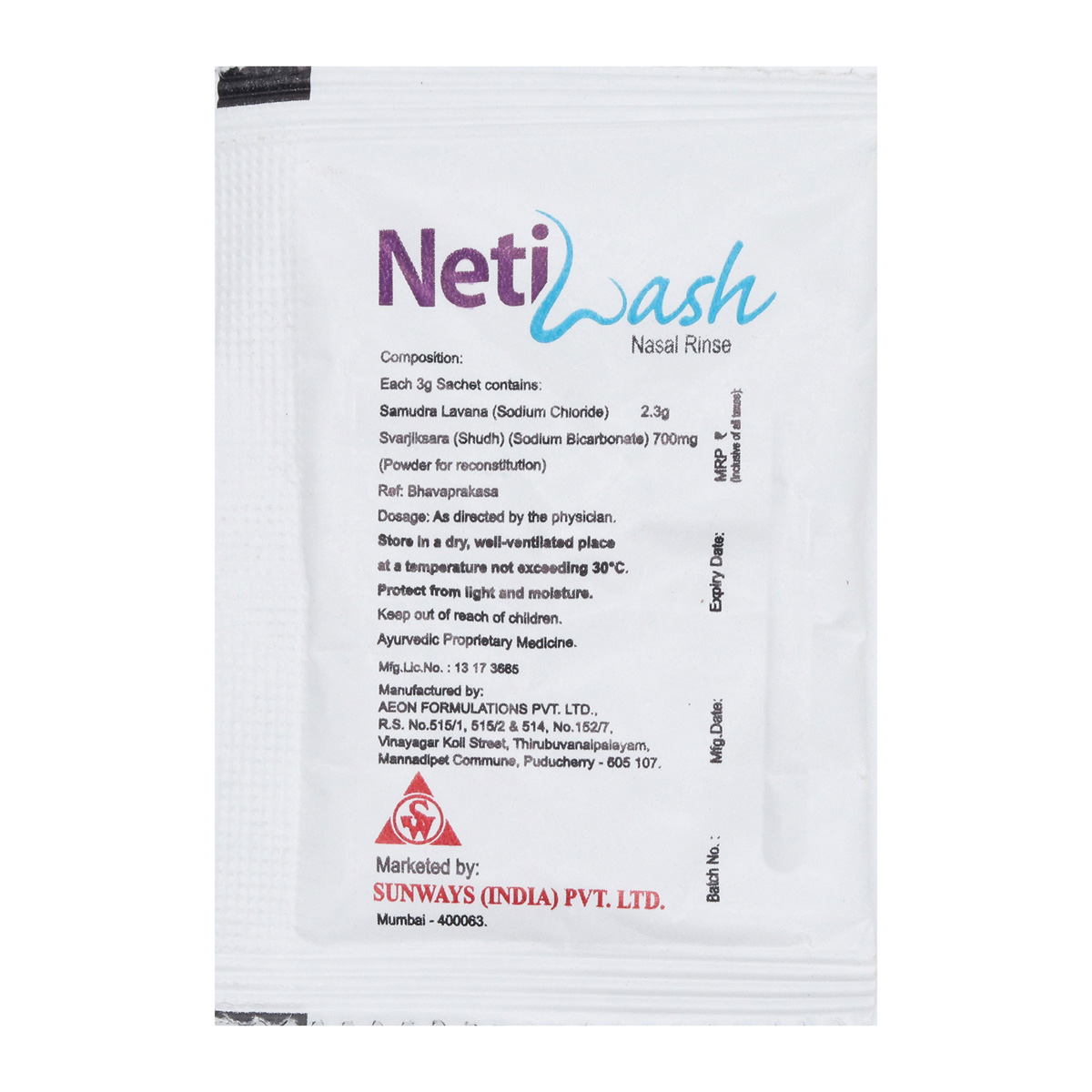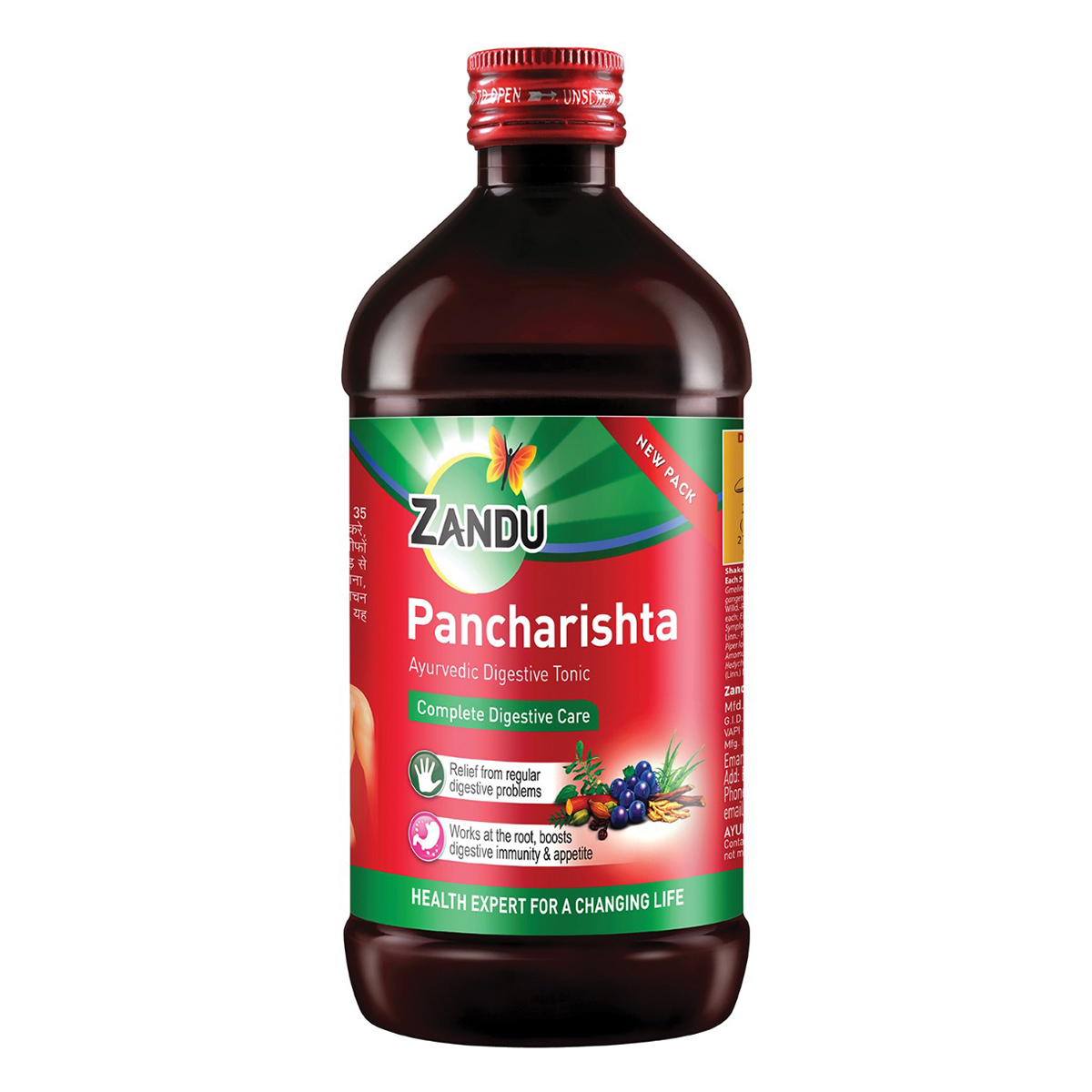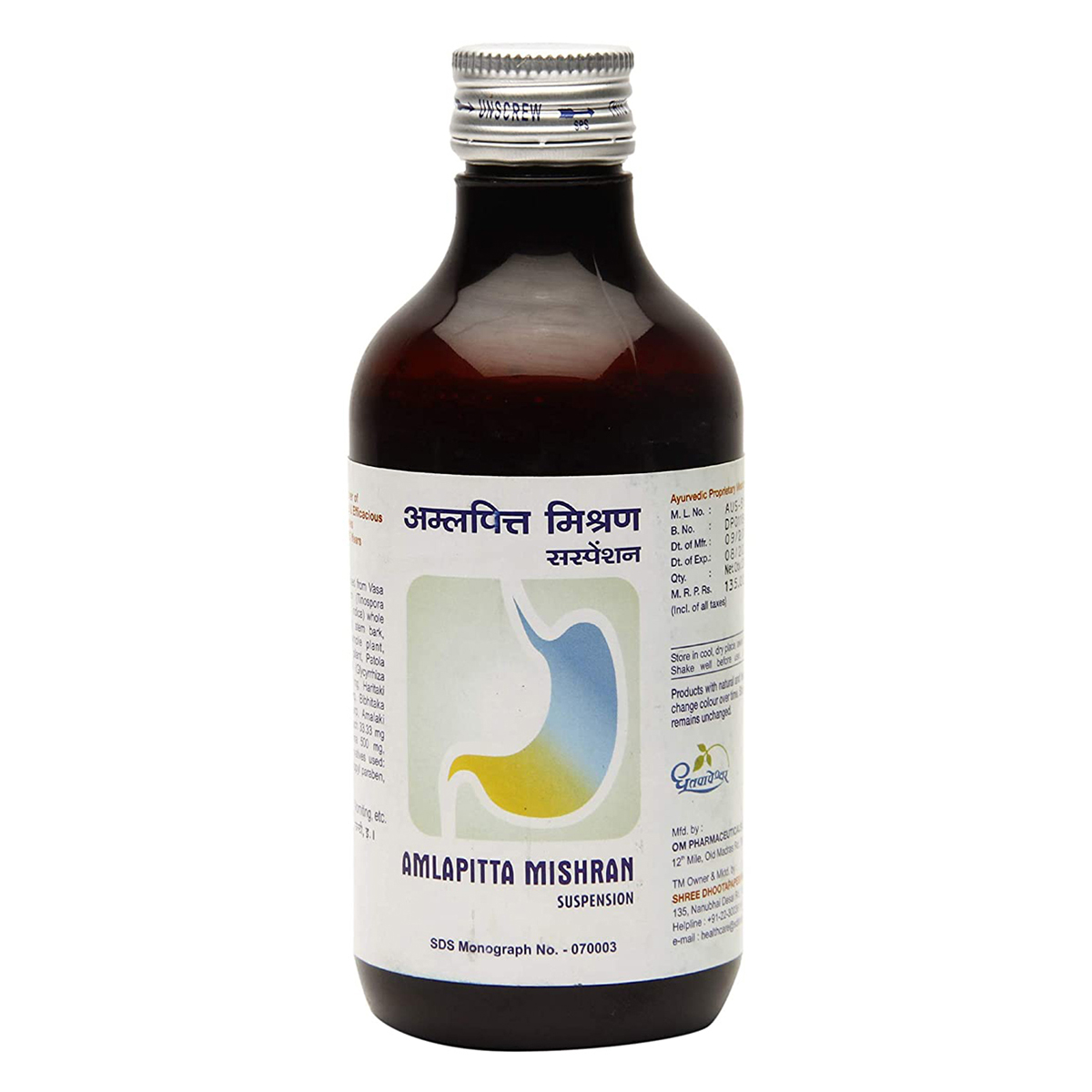Netiwash Nasal Rinse Sachet
MRP ₹260.5
(Inclusive of all Taxes)
₹39.1 Cashback (15%)


Available Offers
Therapeutic Class
Drug-Drug Interactions Checker List
- DEXAMETHASONE
- PREDNISOLONE
- FUROSEMIDE
Drug-Drug Interactions
Drug-Drug Interactions
Login/Sign Up
Taking Netiwash Nasal Rinse Sachet with Gefitinib together can reduce the levels and treatment outcomes of Gefitinib.
How to manage the interaction:
Although taking Gefitinib and Netiwash Nasal Rinse Sachet together can cause an interaction, it can be taken if a doctor has suggested it. Contact your doctor if your symptoms do not improve. Do not stop using any medications without talking to a doctor.
Co-administration of Netiwash Nasal Rinse Sachet and Dolutegravir reduces the levels of Dolutegravir, resulting in reduced effectiveness.
How to manage the interaction:
Although taking Dolutegravir and Netiwash Nasal Rinse Sachet together can result in an interaction, they can be taken together if prescribed by your doctor. However, if you experience symptoms like fever, chills, diarrhea, sore throat, muscle aches, red or inflamed skin, and pain or burning during urination, contact your doctor immediately. Do not discontinue any medications without consulting your doctor.
Drug-Food Interactions
Drug-Food Interactions
Login/Sign Up
Drug-Diseases Interactions
Drug-Diseases Interactions
Login/Sign Up
Drug Warnings
Inform your doctor if you are allergic to Netiwash Nasal Rinse Sachet . Netiwash Nasal Rinse Sachet is not recommended in diarrhoea, kidney diseases, heart diseases. Netiwash Nasal Rinse Sachet should be used with extreme caution in children safety and effectiveness in children has not been confirmed. If you become pregnant, contact your doctor. You will need to discuss the benefits and risks of using Netiwash Nasal Rinse Sachet while you are pregnant. It is not known if Netiwash Nasal Rinse Sachet is found in breast milk. If you are or will be breast-feeding while you use Netiwash Nasal Rinse Sachet check with your doctor. Discuss any possible risks to your baby. Netiwash Nasal Rinse Sachet is also used with caution in pregnancy-associated hypertension. Do not touch the tip of the container as it may get contaminated.
Side Effects of Netiwash Nasal Rinse Sachet
- Ear fullness.
- Burning or stinging of the nasal mucosa.
- Epistaxis.
Directions for Use
Medicinal Benefits Mweb
Key Benefits
Netiwash Nasal Rinse Sachet is a combination of two drugs: Sodium bicarbonate and Sodium chloride belong to a group of medicines called 'nasal decongestants' used to treat sinonasal disease. Netiwash Nasal Rinse Sachet both are sodium salts. Both of the salts work together to provide moisture in the nasal cavity so that the thick mucus softens. This, in turn, helps to clear out the mucus from the nose and relieves the nasal (nose) blockage. This is how it helps in easy breathing and also treats dryness of the nose by providing enough moisture. Netiwash Nasal Rinse Sachet is also used in the treatment of post-operative sinus surgery.
Uses of Netiwash Nasal Rinse Sachet
About Netiwash Nasal Rinse Sachet
Netiwash Nasal Rinse Sachet belongs to a group of medicines called 'nasal decongestants' used to treat sinonasal disease. The sinonasal disease includes chronic rhinosinusitis (Chronic sinusitis occurs when the spaces inside your nose and head (sinuses) are swollen and inflamed for three months or longer, despite treatment), allergic rhinitis (also known as hay fever, is a type of inflammation in the nose which occurs when the immune system overreacts to allergens in the air), and viral upper respiratory infections (common viral infection that affects the nose, throat, and airways).
Netiwash Nasal Rinse Sachet is a combination of two drugs: Sodium bicarbonate and Sodium chloride. Netiwash Nasal Rinse Sachet both are sodium salts. Both of the salts work together to provide moisture in the nasal cavity so that the thick mucus softens. This, in turn, helps to clear out the mucus from the nose and relieves the nasal (nose) blockage. This is how it helps in easy breathing and also treats dryness of the nose by providing enough moisture.
In some cases, you may experience certain common side effects such as ear fullness, burning or stinging of the nasal mucosa, epistaxis (bleeding from the nose). Most of these side effects do not require medical attention and will resolve gradually over time. However, you are advised to talk to your doctor if you experience these side effects persistently.
Inform your doctor if you are allergic to Netiwash Nasal Rinse Sachet . Netiwash Nasal Rinse Sachet is not recommended for diarrhoea, kidney diseases, heart diseases. Netiwash Nasal Rinse Sachet should be used with extreme caution in children as the safety and effectiveness in children have not been confirmed. If you become pregnant, contact your doctor. You will need to discuss the benefits and risks of using Netiwash Nasal Rinse Sachet while you are pregnant. It is not known if Netiwash Nasal Rinse Sachet is found in breast milk. If you are or will be breastfeeding while you use Netiwash Nasal Rinse Sachet check with your doctor. Discuss any possible risks to your baby. Netiwash Nasal Rinse Sachet is also used with caution in pregnancy-associated hypertension. Do not touch the tip of the container, as it may get contaminated.
Online payment accepted
know your delivery time
Provide Delivery Location
Therapeutic Class
All Substitutes & Brand Comparisons
- Hydrate your body: Drink enough water to prevent dehydration and headaches.
- Calm Your Mind: Deep breathing and meditation can help you relax and relieve stress.
- Rest and Recharge: Sleep for 7-8 hours to reduce headache triggers.
- Take rest: lie down in a quiet, dark environment.
- Cold or warm compresses can help reduce tension.
- Stay Upright: Maintain good posture to keep symptoms from getting worse.
- To treat headaches naturally, try acupuncture or massage therapy.
- Over-the-counter pain relievers include acetaminophen and ibuprofen.
- Prescription Assistance: Speak with your doctor about more substantial drug alternatives.
- Severe Headaches: Seek emergency medical assistance for sudden, severe headaches.
- Frequent Headaches: If you get reoccurring headaches, consult your doctor.
- Headaches with Symptoms: Seek medical attention if your headaches include fever, disorientation, or weakness.
- Inform your doctor about the nausea and discuss possible alternatives to the medication or adjustments to the dosage.
- Divide your daily food intake into smaller, more frequent meals to reduce nausea.
- Opt for bland, easily digestible foods like crackers, toast, plain rice, bananas, and applesauce.
- Avoid certain foods that can trigger nausea, such as fatty, greasy, spicy, and smelly foods.
- Drink plenty of fluids, such as water, clear broth, or electrolyte-rich beverages like coconut water or sports drinks.
- Use ginger (tea, ale, or candies) to help relieve nausea.
- Get adequate rest and also avoid strenuous activities that can worsen nausea.
- Talk to your doctor about taking anti-nausea medication if your nausea is severe.
- Record when your nausea occurs, what triggers it, and what provides relief to help you identify patterns and manage your symptoms more effectively.

Have a query?
Verified Buyers Reviews
Side Effects
- Allergic Reaction
- Headache
- Nausea
If any of the above side effects continue or intensify, seek medical advice. Professional guidance may be necessary for appropriate care and treatment adjustments.
Buy best Ear, Nose & Oropharynx products by
Entod Pharmaceuticals Ltd
Cipla Ltd
NuLife Pharmaceuticals
Nri Vision Care India Ltd
Lincoln Pharmaceuticals Ltd
Glenmark Pharmaceuticals Ltd
Macleods Pharmaceuticals Ltd
Pristine Pearl Pharma Pvt Ltd
Centaur Pharmaceuticals Pvt Ltd
Dr Reddy's Laboratories Ltd
Lupin Ltd
Zydus Healthcare Ltd
Indoco Remedies Ltd
Intas Pharmaceuticals Ltd
Mankind Pharma Pvt Ltd
GlaxoSmithKline Pharmaceuticals Ltd
Leeford Healthcare Ltd
Megma Healthcare Pvt Ltd
Sapient Laboratories Pvt Ltd
Sun Pharmaceutical Industries Ltd
Zuventus Healthcare Ltd
Zydus Cadila
Auskincare Formualation Pvt Ltd
Alkem Laboratories Ltd
Bell Pharma Pvt Ltd
Chethana Pharmaceuticals
Dwd Pharmaceuticals Ltd
German Remedies Ltd
Kaizen Drugs Pvt Ltd
Torque Pharmaceuticals Pvt Ltd
Vilco Laboratories Pvt Ltd
Avilius Neutracare
Biochem Pharmaceutical Industries Ltd
Blubell Pharma
Delcure Life Sciences Ltd
Eris Life Sciences Ltd
Kavach 9 Pharma & Research Pvt Ltd
Medishri Healthcare Pvt Ltd
NVK Pharma
Optho Remedies Pvt Ltd
Ordain Health Care Global Pvt Ltd
Respionix Healthcare Pvt Ltd
Troikaa Pharmaceuticals Ltd
Xseed Pharma
Abbott India Ltd
Atopic laboratories Pvt Ltd
Cadila Pharmaceuticals Ltd
Clyde Pharmaceutical Pvt Ltd
East India Pharmaceutical Works Ltd
FDC Ltd
Incus Pharmaceuticals Pvt Ltd
Meridian Enterprises Pvt Ltd
Micro Labs Ltd
Morepen Laboratories Ltd
Nextgen Healthcare
Novalab Healthcare Pvt Ltd
Ocuris Pharmaceuticals Pvt Ltd
Precept Pharma
Salvador Visiontech Pvt Ltd
Sunways (India) Pvt Ltd
Timon Pharmaceuticals Pvt Ltd
Unison Pharmaceuticals Pvt Ltd
Aar Ess Remedies Pvt Ltd
Adley Formulations
Ajanta Pharma Ltd
Alercon Pharma Pvt Ltd
Apex Laboratories Pvt Ltd
Aver Pharmaceuticals Pvt Ltd
BMW Pharmaco India Pvt Ltd
Bio Warriors Pharmaceucticals Pvt Ltd
Casca Remedies Pvt Ltd
Elan Pharma India Pvt Ltd
Elivia Life Sciences Pvt Ltd
Elkos Healthcare Pvt Ltd
Floreat Medica Pvt Ltd
Healthgate Pvt Ltd
Ikon Remedies Pvt Ltd
Ipca Laboratories Ltd
Koye Pharmaceuticals Pvt Ltd
Lividus Pharmaceuticals Pvt Ltd
Orn Remedies Pvt Ltd
Rosa Lifesciences
Siloam Pharmaceuticals Pvt Ltd
Sitnez Biocare Pvt Ltd
Srigan Anatto Care Pvt Ltd
Uniza Healthcare Llp
Vatican Life Sciences Pvt Ltd
Welgenic Pharma
Wellok Pharma
West Coast Pharmaceuticals Pvt Ltd
Win Medicare Ltd
Zee Laboratories Ltd
Abyss Pharma Pvt Ltd
Accent Pharmaceuticals & Diagnostics
Alembic Pharmaceuticals Ltd
Alencure Biotech Pvt Ltd
Austere
Bacans Biotech Pvt Ltd
Biopolis Life Sciences Pvt Ltd
Biosys Medisciences
Customers Also Bought
Frequently Bought Together
₹103.3
MRP ₹124
17% off
4
+₹185.4
MRP ₹206
10% off
1
+₹270.7
MRP ₹318.5
15% off
1
+








